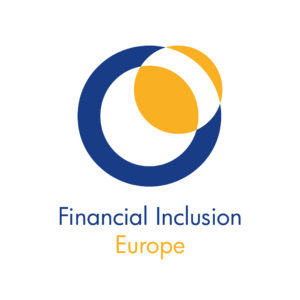Consumer credit are great tools for improving the living conditions of millions of European citizens. They make it possible to carry out personal and family projects that would otherwise be very difficult, if not impossible: renovating one’s home, insulating it, having a car when one does not have adequate access to public transport, and being able to face expenses that exceed one’s monthly budget and thus spread the payment over time.
That being said, the use of credit can also become a headache if not a nightmare when the contracts are full of traps, when credits are too expensive, when they have been signed in a moment of weakness or when their repayment has simply become impossible without depriving the family of the provision of its basic needs.
However, the credit market in Europe today is far from being harmless:
- there is no ban on usury and no maximum interest rate;
- It is not prohibited to offer credit even if the borrowers do not have the capacity to repay it;
- it is not forbidden to vary the terms of repayment beyond the existing repayment capacity at the time of signature;
- it is, thanks to digitalization and big data, increasingly easy to exploit consumers’ emotions and weaknesses to make them sign a contract in a moment of weakness;
- it is more and more complex to choose and identify the credit that is most appropriate for one’s personal situation, as the offers are increasingly personalized and the conclusion of the contract is possible via the internet;
For all these reasons, and for many others that I cannot express in this article, I welcome the revision of the European regulation on consumer credit (Directive 2008/48/EC). However, the new proposal, published end of June 2021, does bring at this stage a series of interesting advances.
Is it enough? NO, more work needs to be done to improve the directive.
At first glance, the text, although substantially improved, still suffers from shortcomings. The objective of tackling bad debt and over-indebtedness is not fully addressed: yet these challenges have been widely documented in recent years, despite the lack of sufficient statistical data.
Some advances do not go far enough, and this will allow the marketing of credit which is either intrinsically dangerous or made dangerous because it is made available to households that cannot guarantee proper use.
A striking lack of impact measurement
In addition, one of the biggest gaps has not been filled at all: the possibility of gathering indicators that would make it possible to measure the quality of the credit available on the market from the consumer’s point of view, as well as a measure of problematic indebtedness and over indebtedness linked to the use of credit:
– default rate by type of credit and by lender: this ratio, which is easy to collect by the competent authority, would make it possible to quickly identify lenders whose business model is based on a large number of repayment accidents;
– default rate and selling mode: was the sale made by an intermediary, or online, or in a store, …? This information is essential for the regulator to ensure that all sales methods are safe and guarantee the proper information and the right decision for both the seller and the buyer.
The market would also gain in quality if the less scrupulous lenders who have more customers in repayment difficulties than the average, were subject to stricter prudential rules, or to the contribution to a future fund for the treatment of over-indebtedness, for example.
A tug of war with the powerful credit industry awaits us
Some will remember the initial draft directive and its impressive dilution following a relentless and well-ordered lobby of the credit industry that has led to the current one.
It is now our duty, as NGOs defending the rights and interests of European citizens and consumers, to prepare our arguments and to coordinate ourselves in order to face and counteract the efforts to unravel the directive, the barriers to any improvement, which will surely take place.
On the way to a coalition
At the Brussels level, a coalition is being created by a new NGO of financial inclusion experts – Financial Inclusion Europe. This coalition will be the first public action of this newcomer.
But as you all know, what is done in Brussels is very often defeated in the Council by the member states: we will therefore have to target both levels of power to improve our chances of success, and the national actors, of which you are a part, have a key role.
**DISCLAIMER: All opinions in this article reflect the views of the author, not of COFACE Families Europe**
About the author:
Olivier Jérusalmy is Managing director – Financial Inclusion Europe

Interested ? Please contact Olivier – olivier.jerusalmy@gmail.com
Reading corner :
- What makes credit so risky? A consumer perspective
- New data on consumer credit mis-selling, poor lending practices expose EU Consumer Credit Directive (CCD) shortfalls
- Responsible lending and privacy protection: A consumer perspective




